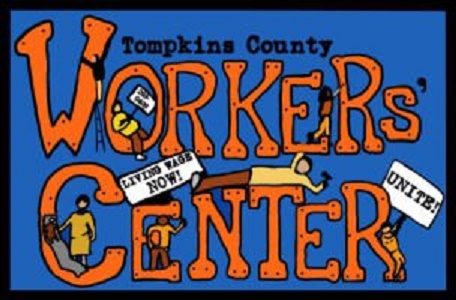FAQ for People Formerly Incarcerated Navigating COVID-19 Unemployment Insurance Programs
From our friends at the National Employment Law Project
Radical Inequality, Records, and Recovery
by Han Lu Areas of expertise: Criminal Records and Employment, Workplace Equity Read Profile PrevNext
For the more than 70 million adults in the United States with arrest and/or conviction records, unemployment rates have long surpassed Great Depression levels, and are estimated to be nearly five times higher than for other workers nationally.[1] On top of the challenges posed by the current pandemic and unemployment crisis, people with records face multiple structural barriers, including racialized segregation and exclusion in housing, education, health care access, voting access, banking, occupational licensing, and employment.
More must be done to ensure that those released prior to and during the pandemic are not only included in recovery efforts but prioritized. As workplaces continue to close in response to the pandemic, workers with records need access to direct cash funds, safe housing, and medical services. Workers with records who have maintained employment as frontline workers in the crisis need targeted supports, including basics like health and safety protection, the right to refuse unsafe work, and unemployment insurance.
More must be done to ensure that those released prior to and during the pandemic are not only included in recovery efforts but prioritized.
Ultimately, any pandemic recovery plan, federal or otherwise, that does not prioritize the experiences and needs of workers with records and incarcerated people is no recovery plan at all—not from the perspective of economic health, public health,[2] or racial equity.[3]
On March 27, 2020, the Coronavirus Aid, Relief, and Economic Security Act (CARES Act) was signed into law. It is intended to provide rapid-response emergency benefits to individuals, small businesses, large corporations, local and state governments, and public health programs. This living document will be updated with any policy changes and is intended to address frequently asked questions regarding working during the pandemic with an arrest and/or conviction record, with a focus on accessing CARES Act programs.
FREQUENTLY ASKED QUESTIONS
- Are people with arrest and/or conviction records eligible for payment under the CARES Act?
- What is unemployment insurance?
- Who qualifies for unemployment insurance?
- How does the CARES Act affect unemployment insurance?
- What if I don’t qualify for unemployment insurance?
- What is Pandemic Unemployment Assistance, and do I qualify?
- What is the Economic Impact Payment (“stimulus checkâ€), and do I qualify?
- What if I own a small business, what CARES Act programs do I qualify for?
- How will the money for UI and the CARES Act programs be calculated?
- I am not currently incarcerated. I have been recently released from jail, prison, or an ICE detention facility, do I qualify for unemployment insurance for the labor I performed while I was incarcerated?
- I am not currently incarcerated. I was released from a jail, prison, or immigration detention facility before the pandemic, and was working. I lost my job because my work ended as a result of the pandemic, do I qualify for any benefits?
- I am currently incarcerated. My work release job where I worked outside of the prison or jail walls ended because of the pandemic. Do I qualify for unemployment insurance or other CARES Act programs?
- What if I owe child support debt, will that affect my UI or eligibility for CARES Act programs?
- What if I owe traffic or criminal court debt, will that affect my UI or eligibility for CARES Act programs?
- If I am called back to work that is unsafe because of COVID-19, can I refuse work and continue to collect UI benefits?


January 3, 2021 @ 6:58 am
Recently released from federal prison am I qualified to apply for the unemployment benefits for the work done in prison
January 8, 2021 @ 6:51 pm
Hi Ginger,
Thank you for reaching out. As far as unemployment insurance eligibility for work that you performed while incarcerated, unfortunately, employers in New York are legally allowed to deny unemployment claims made by former employees employed through a work-release program.
The minimum eligibility requirements for collecting UI benefits in New York are that you have worked in the state within the last 12 months and were paid at least $2,600 during one calendar quarter (3 months) in the past year. Moreover, your total wages for the year must be at least 1.5x the amount of your highest-paid quarter. This means that if you were incarcerated for the entirety of 2020 and did not earn wages other than for work performed while incarcerated, you are unfortunately not eligible to claim unemployment benefits.
However, there are job-placement programs available specifically for formerly incarcerated people through an organization called OAR. You can learn more about these opportunities here: https://docs.google.com/document/d/e/2PACX-1vSjzSrLxqz7UALfXQdFHf0ppX5_50ZOhNjwq7HIFZnGvDxpsh3AKUvLOsi6YSRGx0QoJl_R7TwIhDtB/pub